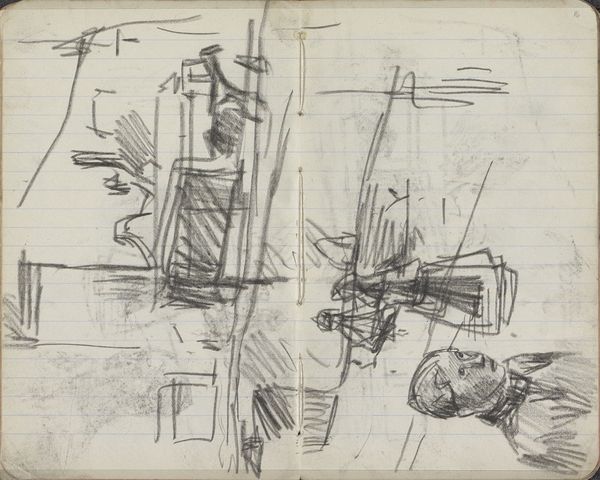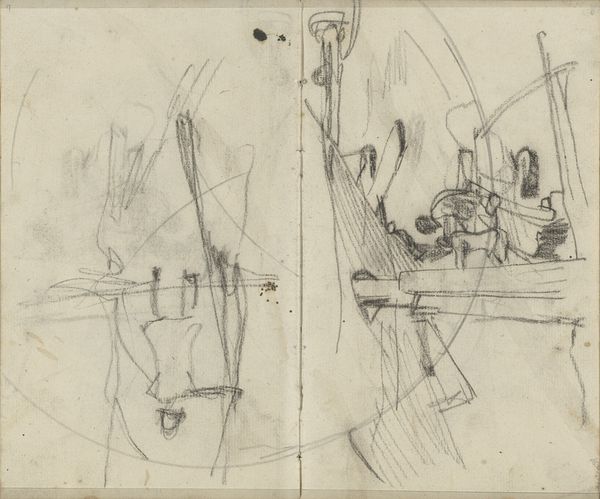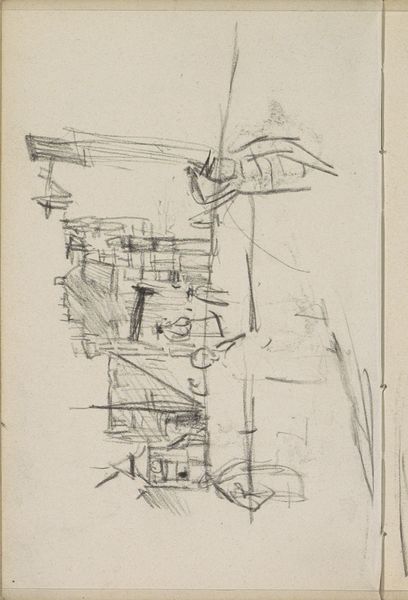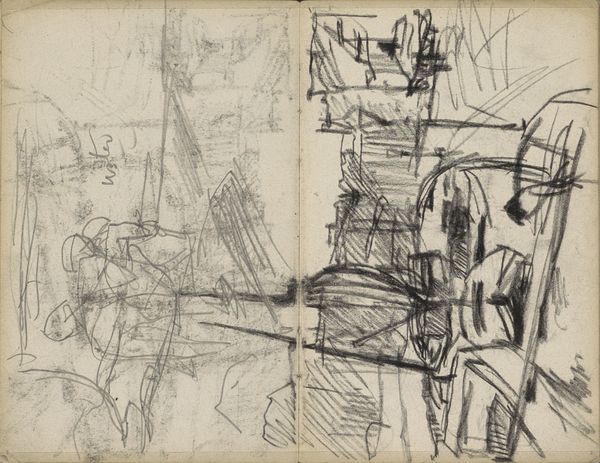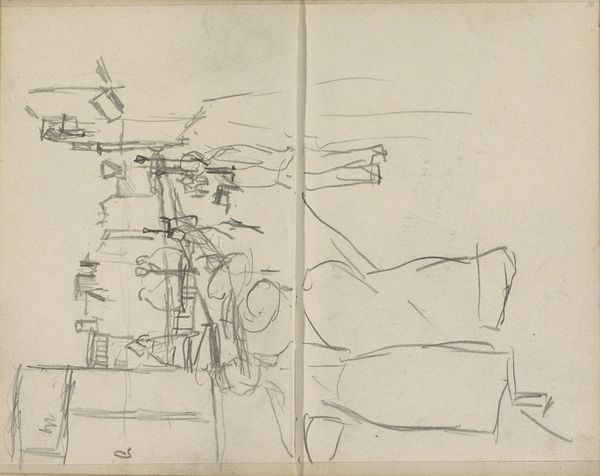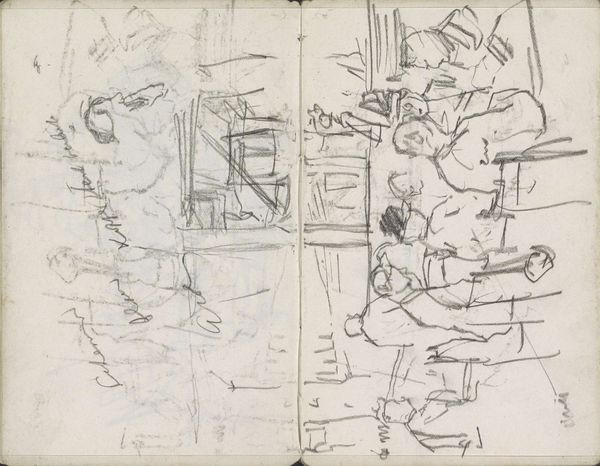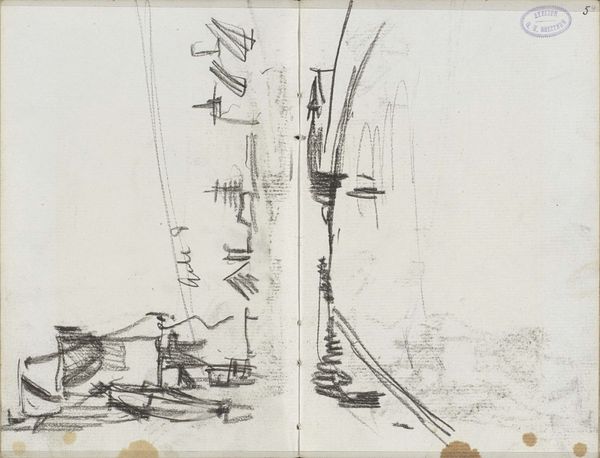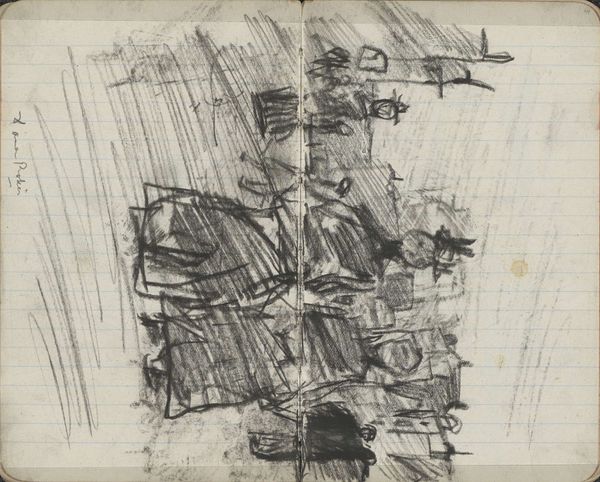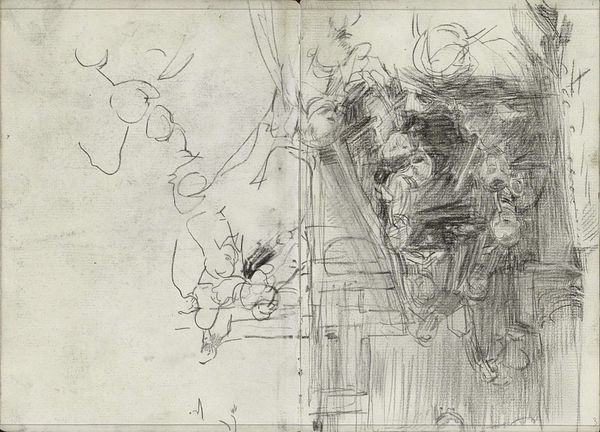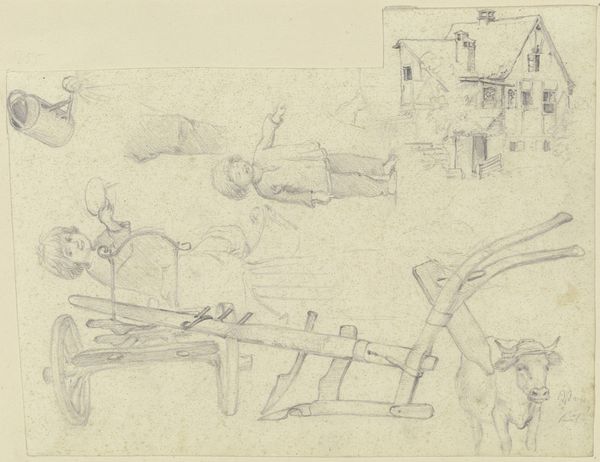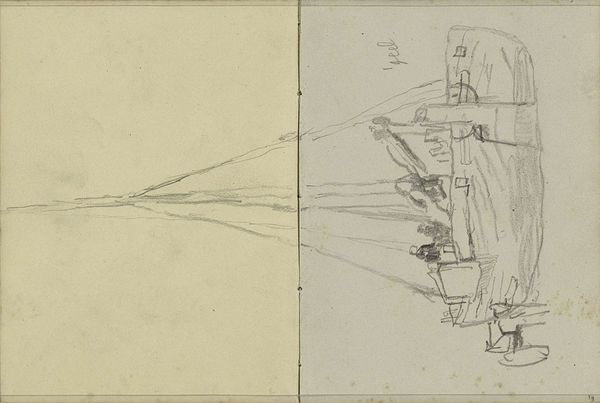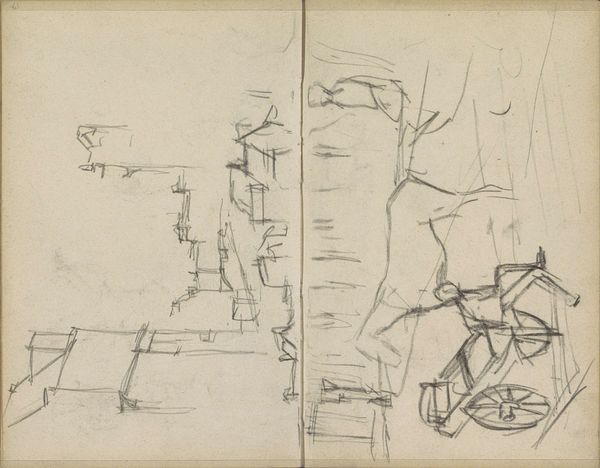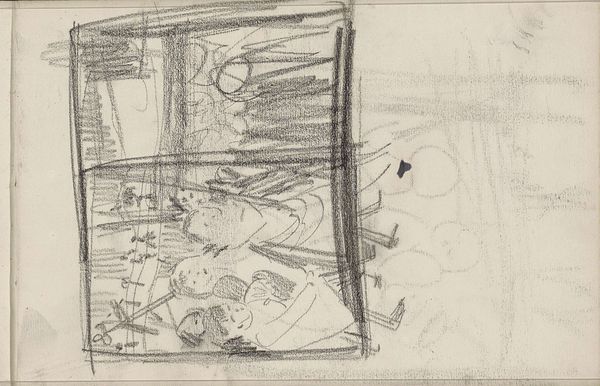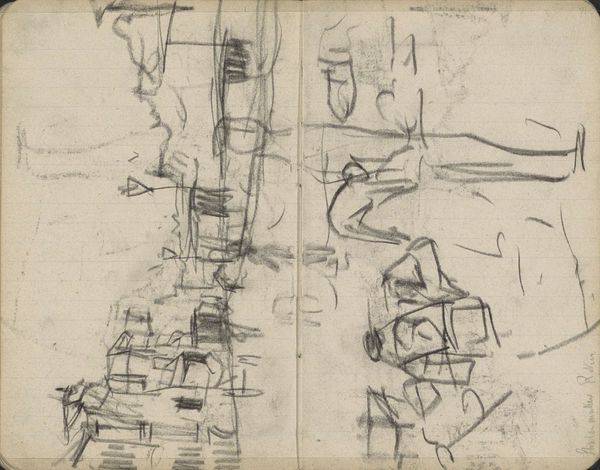
Copyright: Rijks Museum: Open Domain
Editor: This is Isaac Israels' "Women with Children in the Oosterpark in Amsterdam," likely drawn between 1875 and 1934 using pencil and ink. It's currently at the Rijksmuseum. I'm really drawn to its sketch-like quality; it feels like a fleeting moment captured on paper. What do you see in this piece? Curator: I see a tapestry of everyday life imbued with a sense of enduring maternal symbolism. Parks themselves, from the Garden of Eden onward, have signified refuge and nurturing. Note how the wheeled perambulators, those almost cage-like structures for infants, might represent a society grappling with notions of freedom versus protection. What do the circles of the wheels suggest to you? Editor: I hadn’t considered that. They give the feeling of constant motion. The wheel, of course, is often symbolic of change and progress. Is it a tension, then, between the mother and the changes ahead for her child? Curator: Precisely. Observe the artist's quick strokes. Israels isn’t aiming for photorealism; he is trying to capture the energy, the very atmosphere, the fleeting interaction. He presents a universal scene of motherhood – protection, guidance and love. Don’t you think the light pencilwork suggests an air of ephemerality? As if the whole scene could dissolve at any moment. Editor: Yes, the quick strokes and incompleteness contribute to this effect. It is both very simple and universal. I now see the wheels in relation to the women’s nurturing in an ongoing journey of life. Curator: These wheels remind us that every moment with our children is a revolution, both small and large. The symbol of the mother with child and wheel are united for future success in humanity’s progression.
Comments
No comments
Be the first to comment and join the conversation on the ultimate creative platform.
